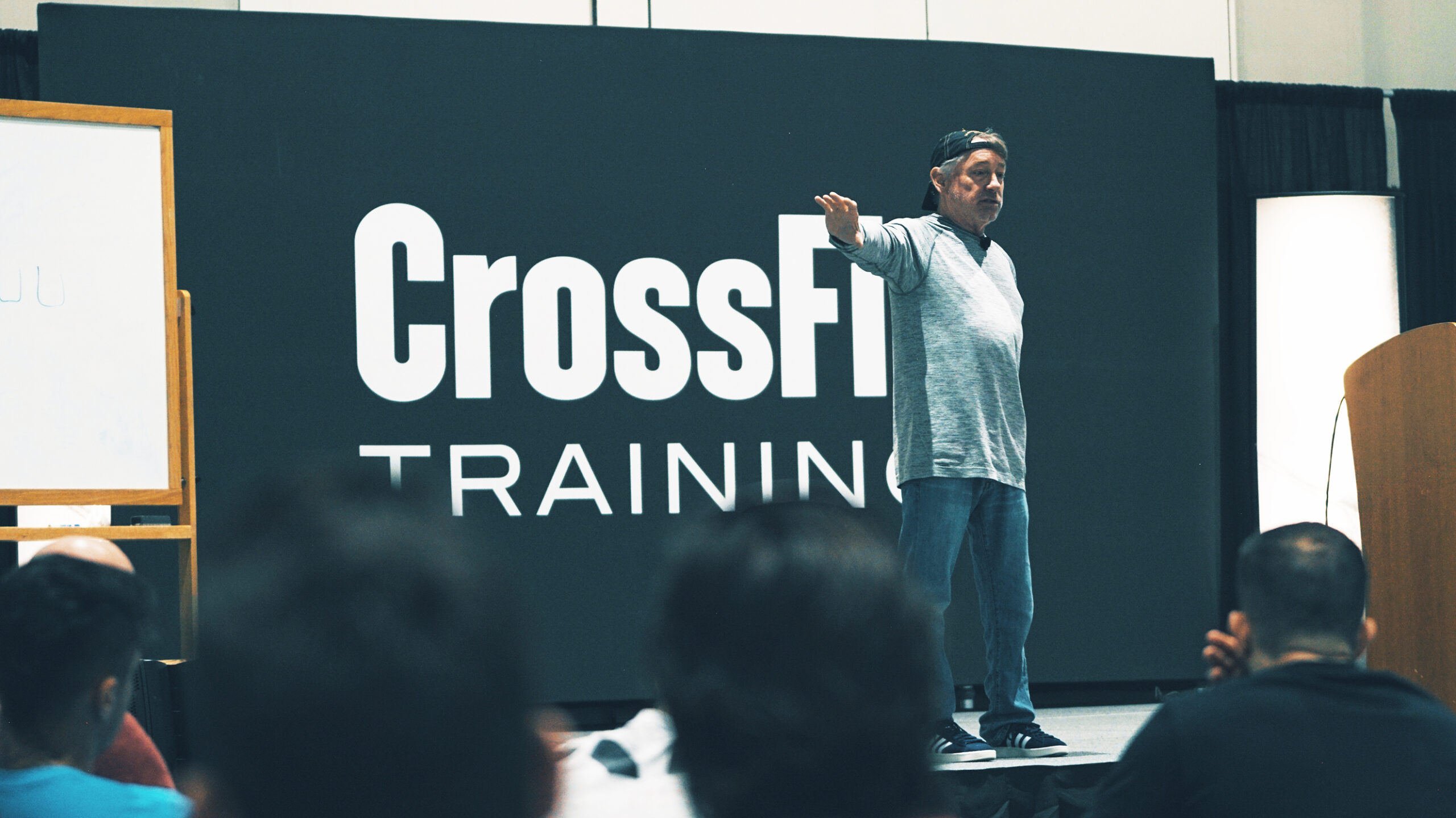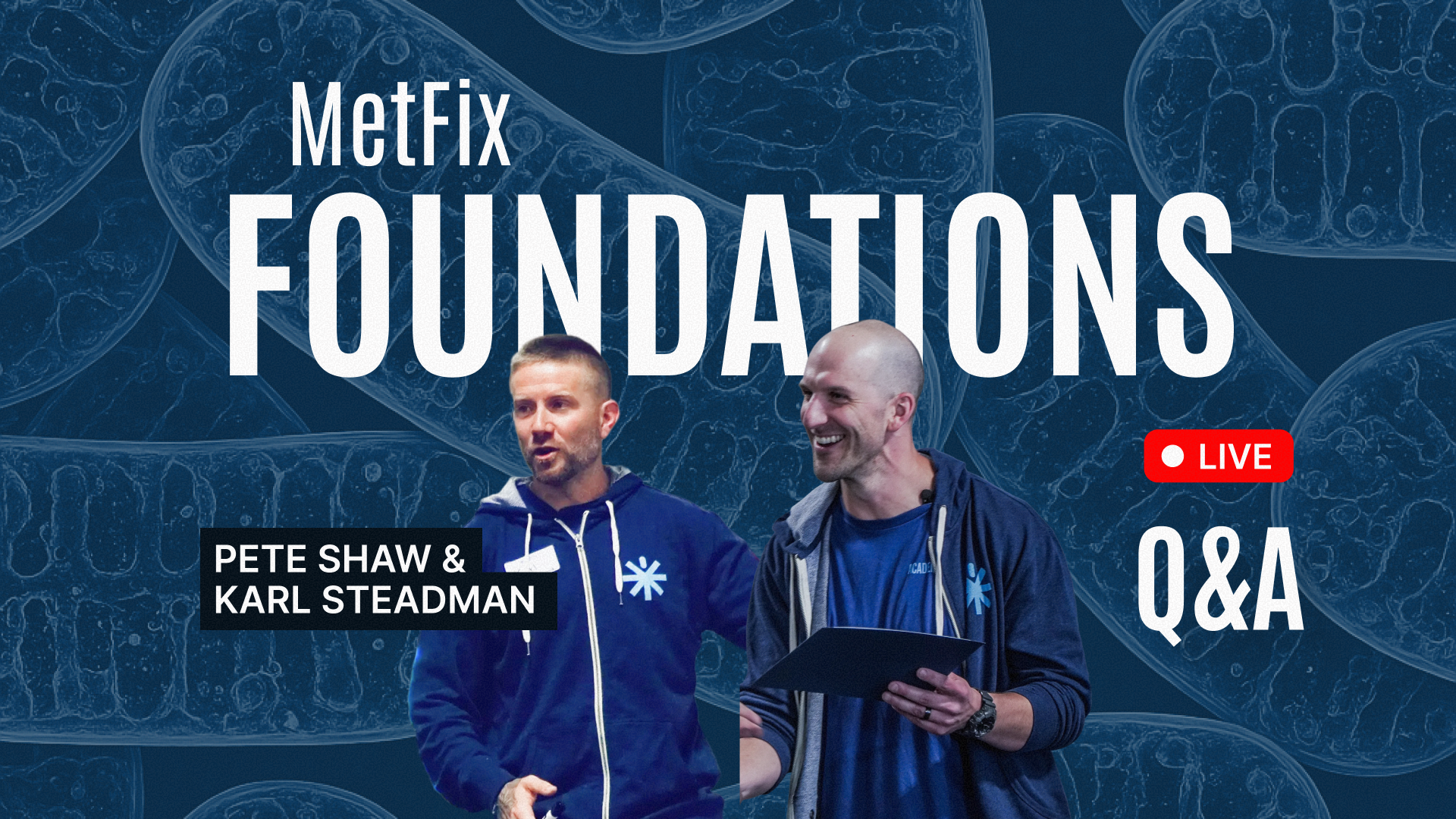Lessons Learned from CrossFit and Applied by The Medical Society
By Emily Kaplan
In the sprawling landscape of modern medicine, there lies a dire need for a paradigm shift akin to what Greg Glassman envisioned for fitness with CrossFit. The science of medicine today is a mess of irreproducibility, statistical manipulation, financial conflicts of interest, and incentives that do not promote healing or prevention. It is high time we establish a new standard in medicine, one that mirrors the rigorous, functional, and inclusive principles many of us learned from CrossFit, but tailored to the unique demands of scientific and medical research.
Greg Glassman, the founder of CrossFit, and cofounder of The Broken Science Initiative identified a critical gap in the fitness industry: the lack of a standardized, comprehensive approach to physical health. The fitness world was fragmented, with different regimens promising varying results without any uniform benchmark for success. Glassman’s genius lay in his creation of a fitness regimen that was measurable, observable, and repeatable. He emphasized functional movements that are essential to everyday life, designed workouts that could be scaled to any individual’s capacity, and fostered a community where results were transparent, and competition drove the improvement.
However, before CrossFit, fitness was a realm dominated by pseudoscientific approaches and subjective outcomes. The lack of rigorous scientific standards meant that fitness programs were often based on consensus, celebrity, or fads rather than empirical evidence. Much like the current state of medical science, where peer review feigns reliability, pharmaceutical companies dictate talking points and the masses fall for novel findings despite any substantive evidence of validation.
At the heart of Glassman’s methodology is high-intensity functional training. This approach is not just about lifting weights or moving quickly; it’s about preparing the body for real-world physical challenges through diverse and adaptable exercises. This standardization brought a new level of accountability and results-driven practice to the fitness community. Regardless of their starting point, every participant was measured by the same yardstick: performance and improvement in functional fitness.
Contrast this with the world of medical research, where outcomes are often subjective and difficult to measure. The medical field today suffers from a lack of standardized, functional, and patient-centric approaches based on clinical data not prophesying models. Current medical practices are too often siloed, reductionist, and dependent on outdated models that fail to consider the complex, dynamic systems that make up human health. The Broken Science Initiative (BSI) seeks to address these flaws by establishing new standards that prioritize predictive power, and rigorous, transparent methodologies.
At the heart of BSI’s philosophy is this emphasis on predictive power as the sole determinant of a scientific model’s validity. A model’s worth is measured by its ability to predict future outcomes accurately–that’s it. This concept parallels CrossFit’s insistence on measurable and observable fitness improvements. In medicine, this means moving beyond p-values and statistical significance as the primary metrics of success. Instead, we focus on how well a treatment or intervention impacts and improves patient outcomes in real-world settings.
For instance, Dale Bredesen’s work on Alzheimer’s disease exemplifies the potential of this approach. By focusing on reducing chronic inflammation through lifestyle changes—diet, exercise, sleep, and stress reduction—Bredesen’s protocol has shown unprecedented success in reversing cognitive decline with loads of clinical evidence. This systems biology approach, which considers the body as an interconnected whole, provides a blueprint for the future of medical interventions. And despite these advances in treatment, Bredesen cannot play in the establishment’s sandbox, which requires limited variables to be studied in clinical trials–mainly for drug approval. He may hold the answers to cognitive decline, yet is not allowed to participate in clinical trials because his approach is multifactorial. See the problem?
We’re told to focus on research that’s been approved by consensus, that has a significant p-value–which says nothing about the results being valid or replicable–and are told to ignore clinical significance.
Glassman’s vision fostered a community where results were public, driving both competition and accountability. Up until 2020, Glassman ran CrossFit and maintained that the standards were essential to the success of any individual athlete and any CrossFit box. Movements were standardized, and scores of all athletes were recorded daily on 15,000 whiteboards for the communities to see in CrossFit boxes around the globe. In medicine, this translates to unmasked peer-reviewers, open data, and rigorous replication of results.
Too often, medical research is plagued by conflicts of interest, lack of transparency, and poorly designed studies. BSI calls for a new era of scientific rigor, where studies are not only methodologically sound but also transparent and replicable.
Before CrossFit, the fitness industry was a Wild West of unverified claims and subjective standards. Similarly, modern medicine often suffers from a lack of rigorous scientific foundation, where treatments are based on consensus rather than hard evidence. This lack of rigor is compounded by a peer review system that often prioritizes conformity over innovation, allowing flawed studies to pass through unchallenged. This must change.
The path forward for medicine involves embracing the principles that made CrossFit a revolutionary force in fitness: a commitment to functional, real-world results, inclusivity, and rigorous standards of measurement and transparency. Just as CrossFit redefined fitness by focusing on functional movements and measurable improvements, The Medical Society seeks to redefine medicine by emphasizing predictive power, clinical significance, and scientific integrity. It is about empowering healthcare providers with the knowledge and tools to make better recommendations in collaboration with their patients–not Pharma. This involves a shift from reactive to proactive care, from treating isolated symptoms to addressing the root causes of illness, and from opaque research practices to open, accountable science.
In the end, the goal is a medical field as dynamic, adaptable, and robust as the human body it aims to heal. By adopting these principles, we can forge a future where medical research and practice are as rigorous, healing, and effective as the best CrossFit workouts, setting a new gold standard for health and wellness.

The Medical Society was co-founded by Greg Glassman, the founder and former owner of CrossFit and CrossFit Health, and Emily Kumler Kaplan, an investigator, communications expert, and serial start-up maven. The Medical Society is revolutionizing the medical landscape by returning to the roots of true scientific exploration. This society is not just another medical organization; it is the antidote healthcare providers need to identify the corrupted landscape of medicine. The Medical Society Members are collectively the preeminent group of practitioners, who share a drive to learn, grow, and offer their patients the best care possible. Together they demand a reinstatement of rigorous, replicable, and validated research practices that prioritize patient care over profit.
Emily Kaplan is an expert in strategy and communication. As the CEO and Co-founder of The Broken Science Initiative, she is building a platform to educate people on the systemic failings in science, education and health while offering an alternative approach based in probability theory. As the principal at The Kleio Group, Emily works with high profile companies, celebrities, entrepreneurs, politicians and scientists who face strategic communication challenges or find themselves in a crisis.
Emily’s work as a business leader includes time spent working with large Arab conglomerates in the GCC region of the Middle East looking to partner with American interests. Emily acquired Prep Cosmetics, expanded it to become a national chain and revolutionized the way women bought beauty products by offering novel online shopping experiences, which are now the industry standard. She was a partner in a dating app that used the new technology of geolocation to help interested parties meet up in real life. Emily developed Prime Fitness and Nutrition, a women’s health concept that focused on the fitness and diet needs of women as they age, with three physical locations. She was the host of the Empowered Health Podcast, and wrote a column in Boston Magazine by the same name, both of which focused on sex differences in medicine.
Emily is an award winning journalist who has written for national newspapers, magazines and produced for ABC News’ 20/20, Primetime and Good Morning America. She is the author of two business advice books published by HarperCollins Leadership. Emily studied Advanced Negotiation and Mediation at Harvard Law School. She has a Masters of Science from Northwestern University and received a BA in history and psychology from Smith College.
Support the Broken Science Initiative.
Subscribe today →
recent posts
And more evidence that victory isn’t defined by survival or quality of life
The brain is built on fat—so why are we afraid to eat it?
Q&A session with MetFix Head of Education Pete Shaw and Academy staff Karl Steadman



